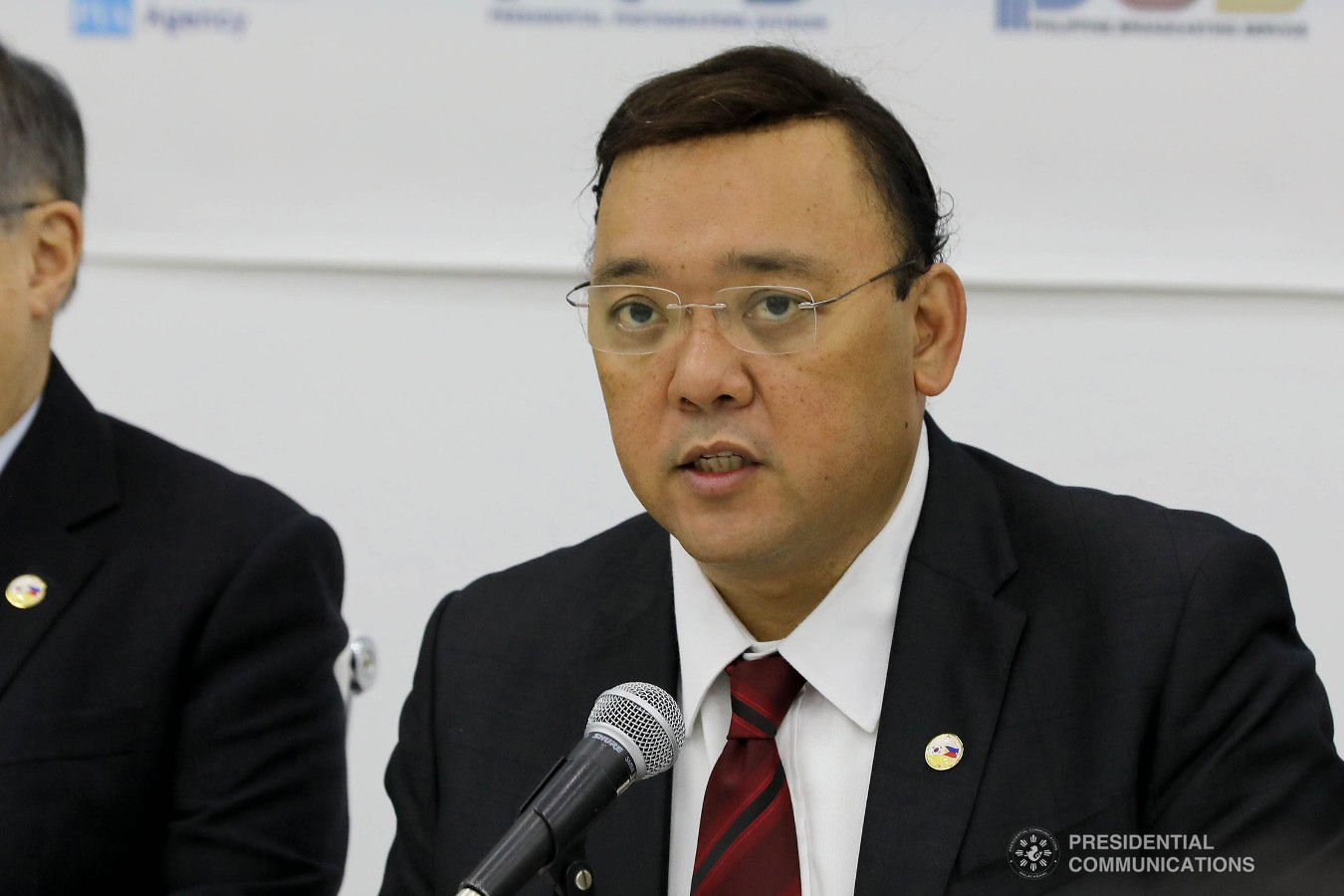Headline
Gov’t targets to test 1.5% to 2% of PH population for Covid-19

Presidential Spokesperson Harry Roque explained that the entire population could not be tested, stressing that no country has been able to test all its citizens. (File Photo: ALFRED FRIAS/PRESIDENTIAL PHOTO)
MANILA – Malacañang on Tuesday said the government is eyeing to test 1.5 to 2 percent of the 110 million population to get a clear picture of coronavirus disease (Covid-19) infections in the Philippines.
Presidential Spokesperson Harry Roque explained that the entire population could not be tested, stressing that no country has been able to test all its citizens.
“It’s not accurate to say that we don’t have the mass testing policy. Number one, no country in the world tests every citizen, that’s a fact. So what we are doing is we’re trying to follow the best examples that we have and right now we’re trying to follow the footsteps of South Korea; and that is why the goal is to test 1.5 to 2 percent of the total population,” Roque said in an interview on CNN Philippines.
In a virtual presser aired over state-run PTV-4, he further clarified that the term used should be “targeted testing” and not mass testing.
“From the very beginning we have had a systematic policy of expanded targeted testing at sa tingin po natin ang sinusunod lang natin (and I think what we follow) is benchmark recognized internationally specifically by the World Health Organization,” he said.
Roque said the government is also aiming to test up to 10 percent of the population of Metro Manila, the epicenter of Covid-19 outbreak in the country.
“Wala pong perpektong formula, kailangan lang nating sundin ang (There is no perfect formula, we just have to follow the) global benchmark and build capacity to test broadly and swiftly, at ito po ang ating ginagawa (and that is what we are doing),” he said.
Under government guidelines, those required to undergo testing are those symptomatic, those coming from abroad, those with close contacts, and those who tested positive in rapid antibody tests.
Roque explained that his remark about leaving it to the private sector to boost the country’s testing capacity was “taken out of context”.
Private sector employees are not required to undergo Covid-19 testing, according to the Department of Health (DOH).
“I said that the protocols of the DOH does not require Covid testing as a prerequisite to go back to work, but it doesn’t mean that if the employers want to test them, they’re prevented from doing so,” he said.
He also claimed that the Philippines has “one of the most stringent testing protocols in the whole world” citing how overseas Filipino workers (OFWs) were subjected to such testing.
“In the Philippines, every OFW that comes home has to be tested PCR (polymerase chain reaction) and meanwhile while waiting for the results, they have to be quarantined. And in addition, ‘no, it’s PhilHealth that pays for the cost of this PCR testing,” he said.
All PCR tests will be shouldered by the Philippine Health Insurance Corporation (PhilHealth).
Public-private initiative
The government and private sector, Roque said, were working together to boost the country’s testing capacity, stressing that there was no truth to the government “transferring” the responsibility to the private sector.
“Ang ginagawa po ng private sector, sinu-supplementa nila e. Hindi namin tina-transfer yung responsibility (What the private sector is doing is they’re supplementing the government’s testing capacity. We’re not transferring the responsibility),” he said, noting that it was one way of expanding its targeted testing.
He pointed out that the testing initiative of the government has been done in conjunction with the private sector.
“It has really been a public-private partnership as far as testing is concerned and I think this is for good reasons because testing is the only way we could determine where the enemy is ‘no, as far as Covid-19 is concerned,” he said.
Businesses know that the economy cannot reopen without a significant population being subjected to testing, he added.
Currently, the private sector-led Project Anti-body Rapid Test Kits (Project ARK) has raised at least 1 million rapid antibody test kits.
Meanwhile, Roque said the government has no problem with funds, since “whatever government does not provide, the private sector is more than willing to provide.”
The problem is the depleting resources since the Philippines had to “compete with the rest of the world” who are better in manufacturing test kits.
“I think money is not the problem, it’s also a supply problem, kasi nga po lahat ng (because all) countries in the world know that the only viable strategy is to test, isolate and then cure,” he said.
As of May 15, the government was able to conduct 11,127 tests per day compared to the 5,000 tests per day on May 2. The goal is to conduct 30,000 tests per day by the end of the month.





















